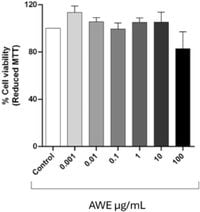People living with neurodegenerative diseases such as Alzheimer’s and Parkinson’s may have new hope, thanks to research published in Scientific Reports. A team of scientists has highlighted the neuroprotective potential of Agarwood leaf ethanol extract (AWE), derived from the Aquilaria crassna tree, which is traditionally used in Asian medicine. Their study reveals that agarwood not only exhibits protective properties against neuronal damage but also promotes the regeneration of cholinergic neurons, which play a critical role in cognitive function.
The research stems from an urgent need to address the growing prevalence of neurodegenerative diseases, which currently affect about 50 million people worldwide—a figure expected to escalate as the global population ages. Traditional treatments for these ailments have limited efficacy, prompting researchers to explore alternative therapies from natural sources. Agarwood, renowned for its aromatic qualities and use in incense and cosmetics, is now showing promising results in a domain previously underexplored.
In their investigation, the authors employed liquid chromatography-mass spectrometry (LC-MS) to identify bioactive compounds in AWE and used molecular docking simulations to predict how these compounds interact with specific neuroprotective receptors. Notably, compounds such as flavonoids and terpenoids were isolated, revealing strong binding affinities with receptors like sigma-1 and TrkB, which are integral to neural differentiation and repair processes.
The in vitro experiments utilized HT-22 mouse hippocampal cells to validate these findings. Treatment with AWE led to a significant increase in the expression of key protein markers associated with neural differentiation and regeneration, with findings specifically indicating an impressive upregulation of proteins such as NeuN, GAP43, and BDNF. “These findings provide compelling evidence of AWE’s neuroprotective properties, highlighting its potential as a therapeutic agent for neurodegenerative diseases,” stated the authors of the article.
Emphasizing the importance of cholinergic signaling, the study found that AWE increases the expressions of Choline Acetyltransferase (ChAT) and muscarinic acetylcholine receptor 2 (mAChR-2). These proteins are critical for cholinergic neuron function, which deteriorates in conditions like Alzheimer’s Disease. The AWE extract not only showed a dose-dependent increase in choline and acetylcholine production but also significantly protected against glutamate-induced cytotoxicity, a common trigger for neurodegenerative processes.
The research initiates a new conversation about leveraging natural compounds in treating neurodegenerative conditions, illustrating how A. crassna can play a dual role in protecting existing neurons while aiding in the formation of new ones. As the authors concluded, “These results demonstrate that agarwood treatment promotes cholinergic properties and is a potential model for developing therapies targeting neurodegeneration.”
While the research is promising, the authors noted the importance of continued investigation into the precise molecular mechanisms at play. Future studies will be essential in confirming these beneficial effects in in vivo models and moving toward clinical applications. The findings endorse agarwood as a natural avenue for therapeutic exploration, potentially enriching the toolkit for combating neurodegeneration.

